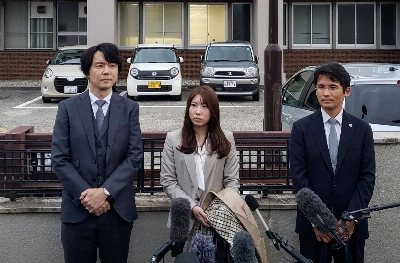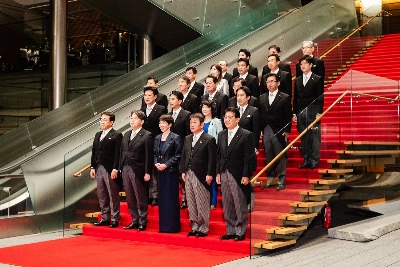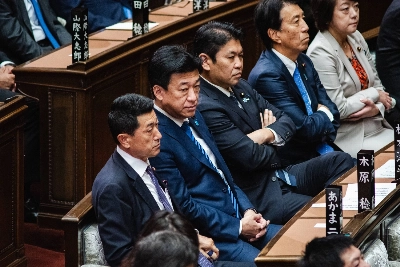A Chinese democracy activist who has been granted refugee status expressed his joy Friday at the Justice Ministry's decision, 11 years after he first applied following the Chinese government's crackdown on demonstrators in Beijing's Tiananmen Square in 1989.
It is rare for refugee status to be granted to a Chinese antigovernment activist, although immigration authorities have in the past issued special visas to a number of Japan-based activists who cannot return to China for fear of persecution, according to lawyers for Zhao Nan.
Zhao, 51, told a news conference that being granted refugee status proved that "Japan is a country that adheres to the rule of law," adding that he is glad Tokyo has acknowledged Beijing's persecution of citizens seeking democracy.
Lawyers said they appreciate the Justice Ministry's decision Thursday, even though the process took a long time.
Junichi Ikeda, one of Zhao's lawyers, said he suspects the Japanese government was initially reluctant to grant anti-Beijing activists refugee status out of diplomatic considerations toward China.
Zhao was one of the leading Chinese activists based in Japan at the time of the Tiananmen massacre in 1989. He made his first application for refugee status while he was in Osaka in 1990, fearing persecution if he returned to China.
The application was immediately denied due to the so-called 60-day rule, which stipulates that an application must be made within 60 days of the applicant recognizing the danger in returning home.
A suit filed by Zhao demanding nullification of the decision was dismissed by the Supreme Court in October 1997. But he reapplied for refugee status in February 1996 and again in December 1997.


















With your current subscription plan you can comment on stories. However, before writing your first comment, please create a display name in the Profile section of your subscriber account page.